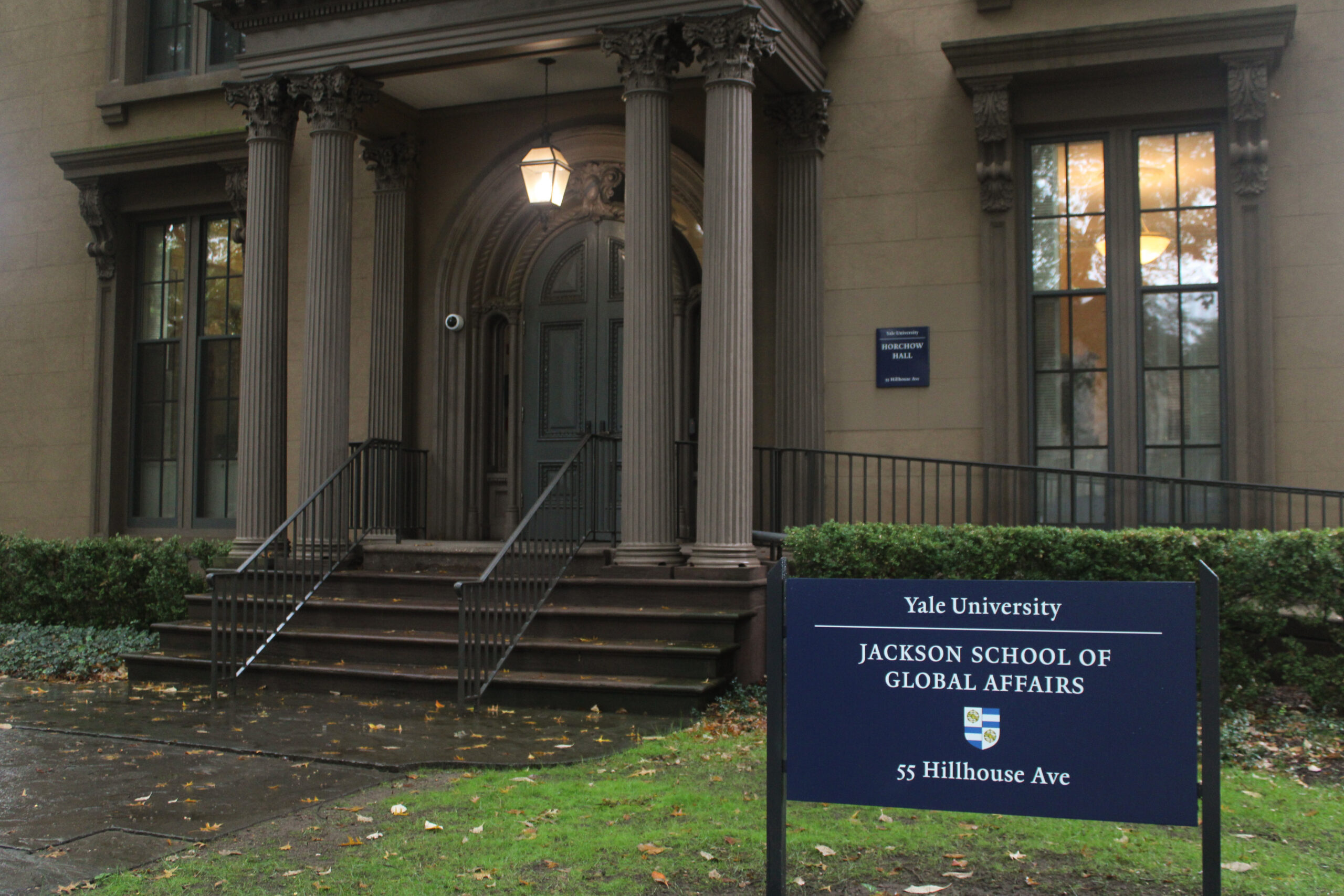Student’s petition objects to authors in Iran course’s syllabus
An Iranian student who started an online petition takes issue with authors included in the syllabus for former U.S. diplomat Robert Malley’s course on U.S.-Iran relations.

Rachel Mak, Photography Editor
A student petition is protesting the syllabus of a course about Iranian-American relations taught by Robert Malley, a former U.S. special envoy to the country.
The petition, titled “No Safe Haven for Fascist Regimes at Yale,” which had achieved over 140 signatures by Thursday night, takes issue with four people it describes as being on the course syllabus and having “long-standing ties to the Islamic Republic.”
Malley, formerly the U.S special envoy for Iran during the Biden administration, was first investigated and placed on leave in 2023 due to concerns over his alleged mishandling of classified documents. Malley has denied wrongdoing.
Malley’s course “Adversaries by Design: Deconstructing the Iran-US Relationship” is the only course he is teaching this fall. He was hired in 2023, months after he was put on leave by the State Department.
Hadi Mahdeyan ’27, an Iranian student who started the petition, described his shock at reading the syllabus for Malley’s course.
“Growing up in Iran and being in the middle of all the nuclear negotiations and the protests and the government oppression, this has always been something that I’ve been familiar with,” Mahdeyan said in an interview with the News.
The course syllabus, available on Canvas, lists three of the four people cited in the petition. Articles by former Iranian foreign minister Mohammad Javad Zarif, former Iranian diplomat and Princeton researcher Seyed Hossein Mousavian, as well as four by scholar Ali Vaez of the International Crisis Group, are all assigned. Malley was formerly the president and CEO of the International Crisis Group.
The News was not able to independently verify that the fourth person listed on the petition, Trita Parsi — the executive vice president of the Quincy Institute for Responsible Statecraft — was on any version of the syllabus. Outside of this course, Parsi is listed on the website of the Jackson School’s Grand Strategy Program as a guest “involved in the program.”
In an email to the News, Malley wrote that “the syllabus includes a wide array of voices. In this class, for example, we will be joined remotely by a former Trump administration official, a former Biden administration official, a former Iranian official, as well as several analysts and experts on issues affecting U.S./Iran relations.”
“Similar to all the courses I teach at Yale, my objective in this class is to give students the tools to look at the world through multiple perspectives,” Malley wrote.
Mahdeyan’s petition advocates for Yale to audit instances in which individuals associated with the Iranian government are “platformed.”
A University spokesperson did not respond to the News’ request for comment.
Siena Galesi-Grant ’28, a student in the course on Iran, described it as her favorite of the “quite a few foreign policy and Middle East courses” she had taken at Yale. She said she had no qualms about the content of the syllabus or Malley’s security clearance.
Mahdeyan, who is not in the course, said he took issue not just with the syllabus, but with Malley himself teaching the class, adding that he doesn’t believe that there can be a “productive discussion” given what he described as Malley’s connections to the Iranian government.
“I am always more than willing to engage with any student on campus who wishes to discuss the class, my perspective, my background, or any substantive issue — including of course members of the Yale community who disagree with my views,” Malley wrote to the News.
Mahdeyan admitted that he had declined an invitation to meet with Malley.
“He’s being given institutional authority that I don’t agree with,” he said. Mahdeyan added that speaking with Malley would “just legitimize this class.”
In the fall of 2023, Malley taught his first course at Yale — “International Politics of the Middle East: Perception and Misperception in Four Crises.”
Sophia Stone contributed reporting.







